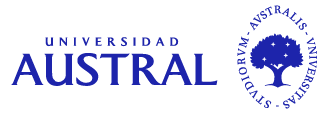 By Ángel Centeno
By Ángel Centeno
Academic Secretary and Medicine Program Head
Universidad Austral’s School of Biomedical Sciences
It seems absurd to have to consider whether medical school students should receive humanistic education. How can the medical profession be construed without a component that deals with a key aspect of medical work –the human condition of every patient?
In any case, it is germane to raise the subject, as, in the past few decades, medicine has often verged on mercantilism, patient neglect, with an excessively technological approach, although, fortunately, that hazard never actually materialized.
Many of our teachers warned us that this could happen, but the first ones to notice this trend were med students themselves, who, with the self-awareness that characterizes youth, were able to perceive and isolate the poorly professional behavior of some of their teachers or some of the physicians they saw practicing. However, they also noticed the commendable, professional, respectful and caring attitudes of other doctors, who excited them with the practice of a profession that comes very close to the core of mankind.
Students who start their med school programs pay close attention to their teachers: how they treat their patients and students, their ability to work in teams with professionals from other fields, and their efforts to advance science by striving to enhance their skills on ongoing basis.
Over the years and as students acquire greater knowledge about medical practices, they hone their powers of observation even more, focusing on the virtues and flaws of their mentors. At this juncture, when critical observation abounds, guiding students to reflect on their teachers’ attitudes. However, this is done less frequently than desired –mainly for two reasons. First, students do not often have much time to think about their future role as physicians; second, faculty members’ time also proves insufficient for them to promote students’ reflection.
Universidad Austral’s School of Biomedical Sciences tries to devote some time within a packed curriculum, like all other med school curricula around the world, to help students to think about their own future as physicians, based on the actual experiences they witness in their learning years. The idea is for both bad and good examples to become opportunities for personal and professional growth for every one of them. They need teachers’ guidance to discover how rich those experiences are and to embrace them.
Is there a way to help students preserve their rather naïve view of physicians’ relationships with patients? Some experiences have proven effective in several fields. First, schools and teachers should try to avoid the desire to teach everything. Schools must train graduates to continue learning –mostly in the very effective learning systems provided by medical residencies. Second, we should promote collaborations, not only with other sciences but also with the arts and philosophy, as well as their disciplines, to enrich students’ spirit. Finally, faculty members should be encouraged to bolster their role model potential, serving as examples for those who learn from them.
This, compounded by an interest on scientific advancement, provides meaning to medical schools’ ongoing efforts to nurture better physicians for tomorrow.
http://credit-n.ru/zaymyi-next.html

